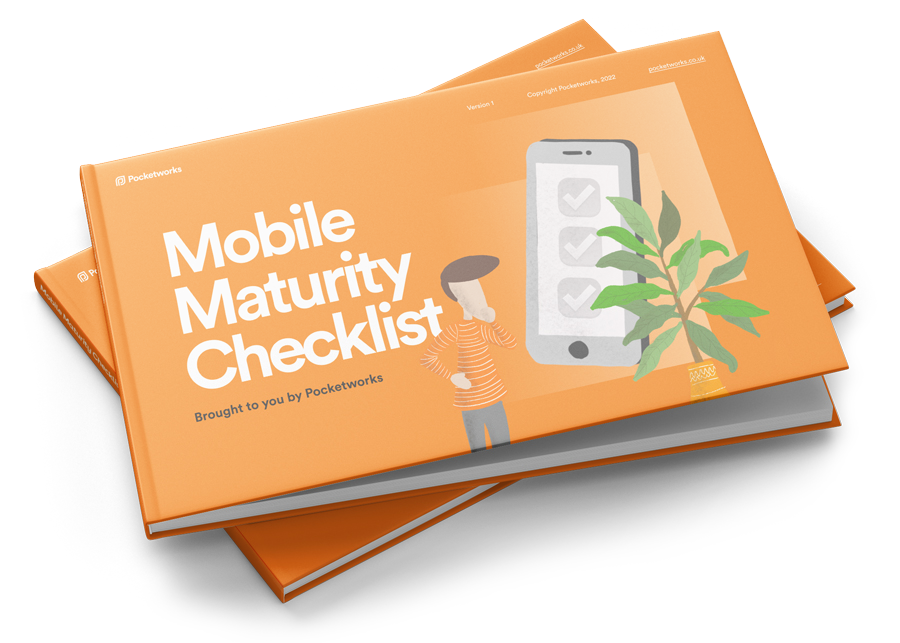The other day I was having a friendly chat with a local startup founder in Leeds. We were chatting about the potential for mobile apps to complement his existing web platform.
He mentioned the high costs of developing an app and we agreed that apps are hard to get right. At one point, I heard myself say:
My default advice for most businesses is "don't build an app". They're very hard to get right, super expensive to develop, and even more expensive to grow.
Now, as the owner of an app development company, you might think that's a pretty odd point of view. After all, isn't my company's purpose to help businesses succeed with apps?
I think the key word here is "succeed".
Mobile success is hard; 99% of apps fail, and there is a 50% chance that any user who downloads your app will abandon it on day 1. On top of that, the cost of acquiring users in the UK is at an all-time high, so it's really hard to build a successful app and expensive to grow it.
That's why I advise organisations not to build an app, at least at first.
What I would strongly advise is that they explore the strategic potential for apps.
The strategic potential of apps
Exploring the potential simply means finding out if an app is a good idea before investing heavily. It's about experimentation and learning. The goal is to find out where apps can help with the overall business strategy. Common themes are:
- Satisfying customers
- Driving up repeat business
- Delivering your services in a more convenient way
- Delivering new forms of value to customers to help grow memberships
Seeing an app as a strategic possibility opens up some new ways to move forward, and you don't actually have to build an app just yet. Instead, you simply explore the barriers to success - the risks that might cause your app to fail.
This might sound obvious, but a lot of companies forget to do this. They get excited by the idea of an app and then go off and build it. Then, £300,000 later, they are disappointed that the app hasn't gained the customer adoption they hoped for.
To help improve this situation, we recommend that businesses treat app development like traditional product development. This means doing R&D and prototyping before making the big bets.
Let's look at how you do that.
Dipping your toe in the water
Finding out if an app is right for you doesn't have to be hard. Here are a few ways you can do this.
- Create a back-of-the-napkin finance projection
Crack open Excel and model the 2-year costs of building an app. Whack in £500K for development over 2 years, and about £3-£5 per user, depending on how you plan to drive downloads. Account for back-office business changes, too. They calculate the expected ROI in terms of revenue or customer lifetime value. Sure, these costs will vary, but they will give you a good starting point. See some pointers on app development costs. - Conduct a customer survey
Email your customers and ask them some open questions about their experience with your company, focused on use cases where they are out and about. Make sure you follow some user research best practices, such as "open questions". Ask a UX specialist to do this for you. - Create a prototype and watch customers use it
If you've got a solid idea you're considering, create a smoke-and-mirrors prototype that customers can click through and give feedback on. You can see if customers find your idea valuable, or if they think it's a dud. This can save you hundreds of thousands in development costs. Again, an app UX specialist can help. - Create a minimal viable product and measure performance
This is a more expensive approach and entails building the smallest app possible and releasing it to a cohort of customers, then measuring engagement and collecting feedback. Founders often make these too big, so budget £150K but aim to deliver something in £50K. If £50K isn't enough, see how close you can get. Keep it small, ship fast and measure results.
You can probably think of more guerrilla tests that can help de-risk the possibility of building an app. Anything goes here. It's all about learning as fast as you can.
Give me a shout, and I'll happily help you come up with more low-cost experiments to test if your ideas have legs. Also, check out our strategy resources and inspiring examples.
Exploring if an app is the right strategic possibility is a fun thing to do. Testing ideas helps you build confidence in your direction. Perhaps you'll learn that an app isn't right for your business right now. Or perhaps it will be absolutely awesome.
Enjoy!
Photo by Jana Knorr on Unsplash



